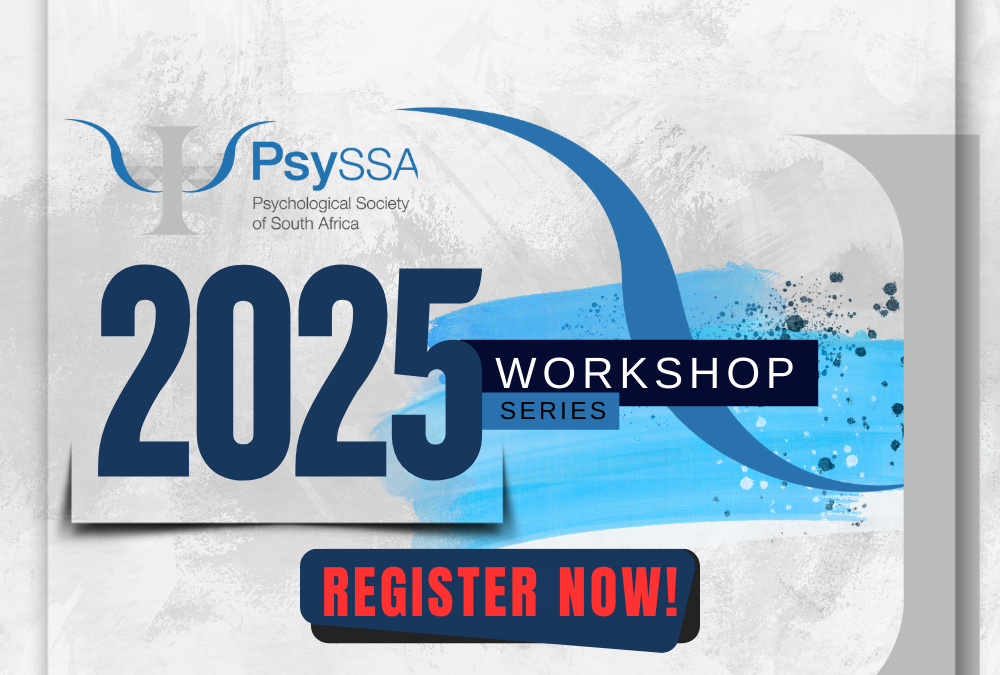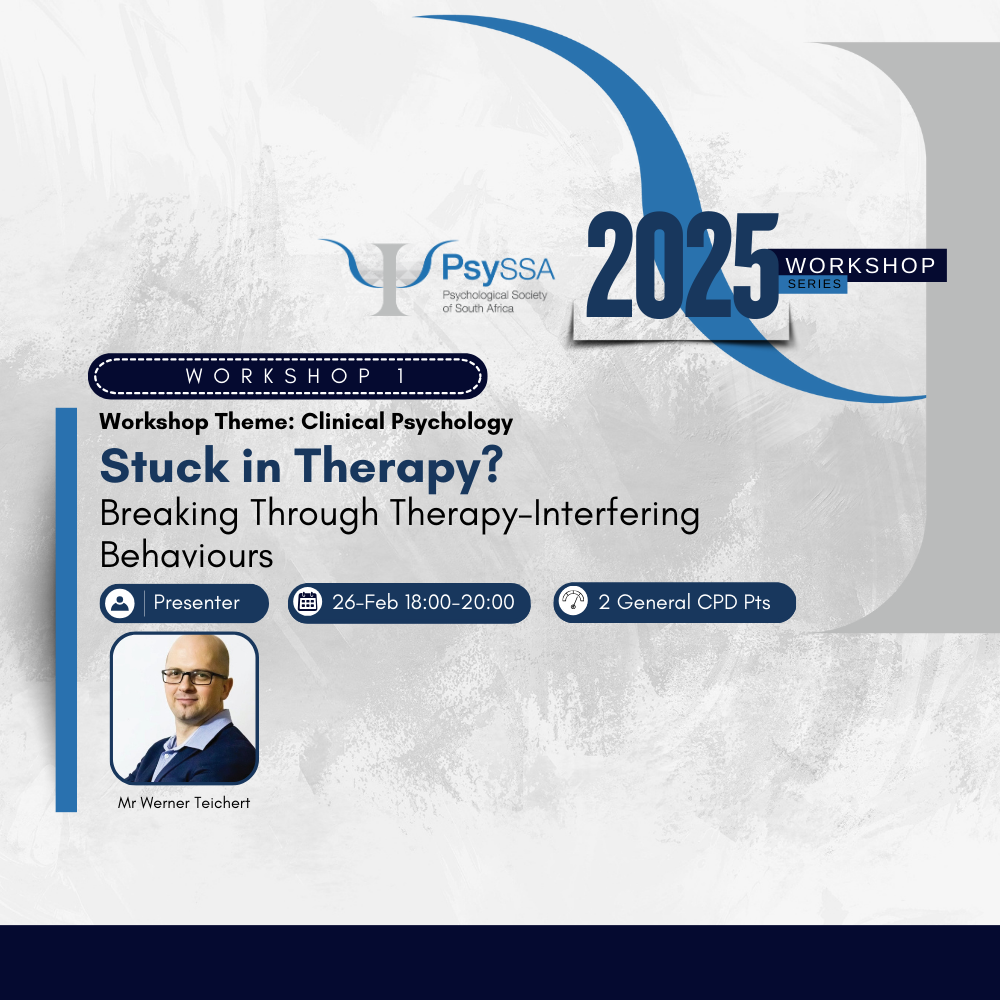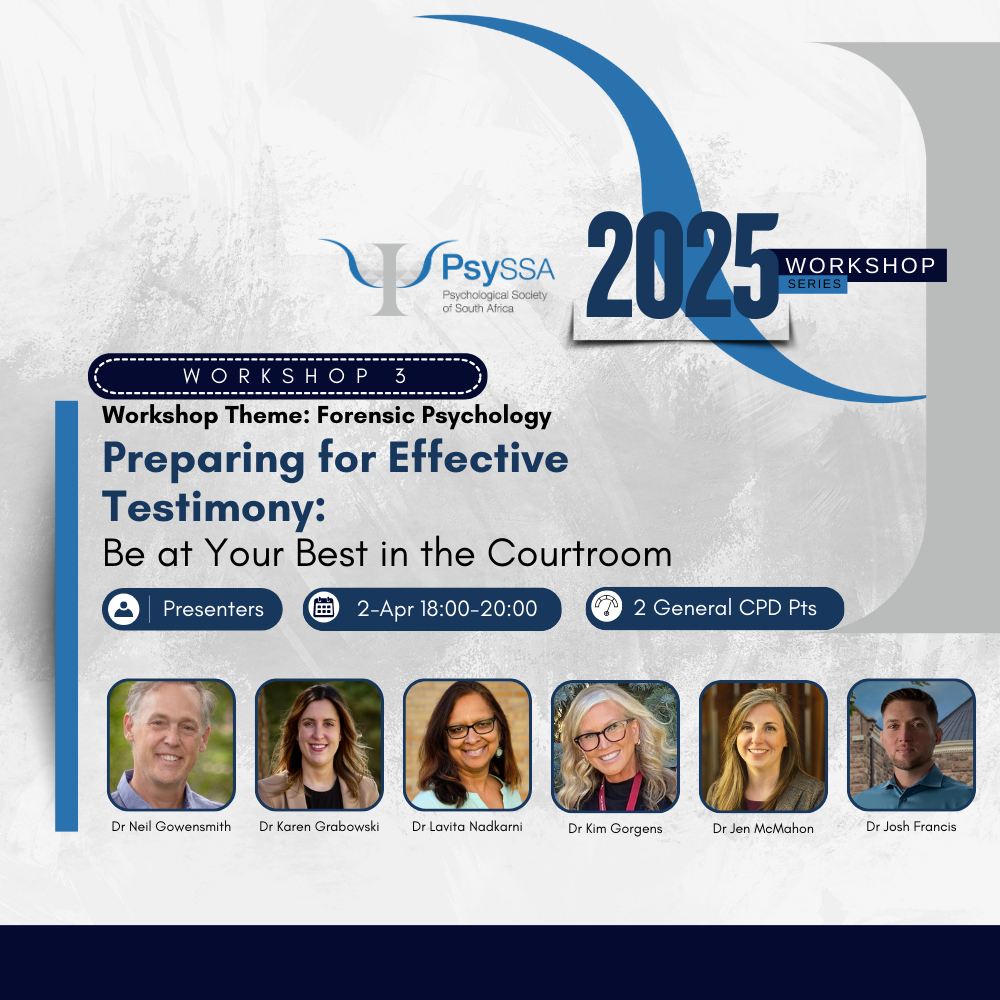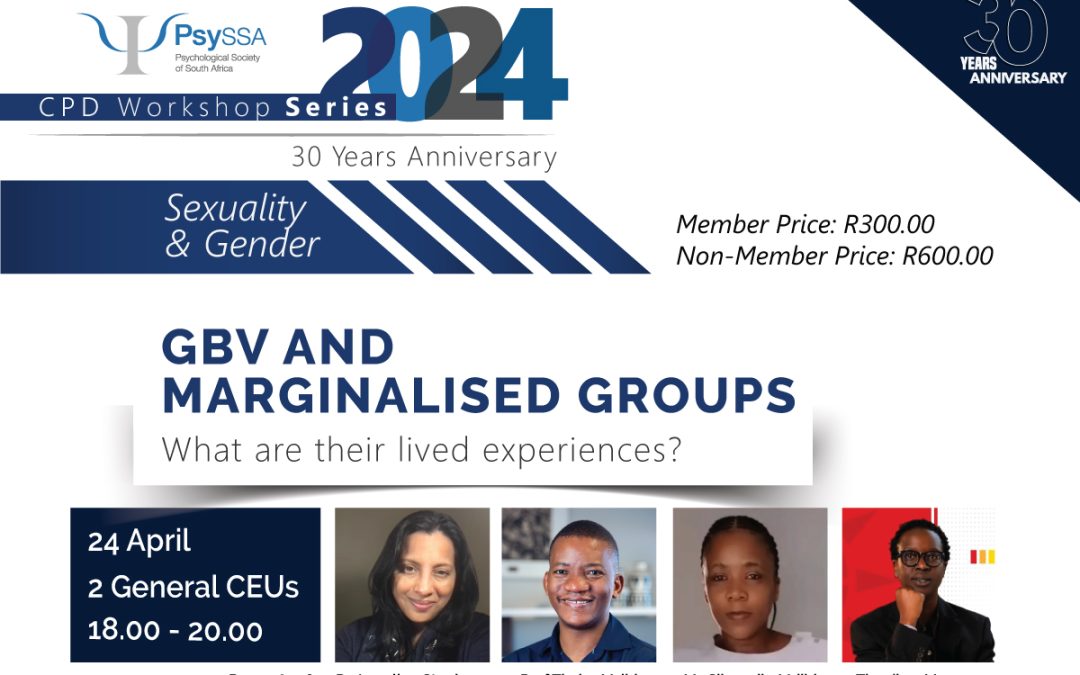
PsySSA CPD Workshop Series 2025 – Registration Now Open!
PsySSA 2025 CPD Workshop Series – Registrations Now Open!
We have 12 insightful workshops lined up with limited spaces! Don’t miss out—register now!
Here’s a sneak peek at the first three workshops:
WORKSHOP 1
Stuck in Therapy? Breaking Through Therapy-Interfering Behaviours

- By Mr Werner Teichert
- 26 February 2025 at 18:00-20:00
- 2 General CPD Points
Therapy-interfering behaviours (TIB) can derail progress, leaving both clients and clinicians feeling frustrated and stuck. These behaviours—such as avoidance, disengagement, excessive venting, resistance, and session cancellations—often function as self-protective strategies but ultimately hinder treatment outcomes. This session will equip mental health professionals with evidence-based DBT strategies to identify, address, and transform TIB into meaningful therapeutic engagement.
Participants will explore the underlying emotional, cognitive, and behavioural drivers of therapy stagnation, learning how validation, contingency management, and dialectical interventions can re-engage clients without reinforcing avoidance. We will discuss when and how to confront TIB directly, maintaining the therapeutic alliance while encouraging accountability and participation.
The session will include DBT techniques to shift therapy momentum, prevent dropout, and foster deeper client engagement. By the end of this session, clinicians will have practical tools to navigate resistance, manage session disruptions, and facilitate meaningful client progress in therapy.
This workshop is ideal for mental health professionals seeking to enhance their ability to recognise, respond to, and resolve therapy-interfering behaviours in both individual and group settings.
WORKSHOP 2
Psychic Militancy Against (Psychic) Imperialism

This talk will explore how remaining aligned in psychic militancy is a challenge and will focus on distilling the mechanics of such militancy to read how settler colonial logics, and their imperialist counterparts work to lodge themselves inside of us. It will take up how we might refuse psychic intrusions and their politically demobilising work. An exploration of the psycho-politico-affective work of these violent systems and how they impress on our psyches will be further explored.
- By Prof Lara Sheehi
- 3 March 2025 at 18:00-20:00
- 2 General CPD Points
WORKSHOP 3
Preparing for Effective Testimony: Be at Your Best in the Courtroom

Presenters:
- Dr Neil Gowensmith
- Dr Karen Grabowski, PhD Clinical Assistant Professor, University of Denver
- Dr Lavita Nadkarni
- Dr Kim Gorgens
- Dr Jen McMahon
- Dr Josh Francis
2 April 2025 at 18:00-20:00
2 General CPD Points
Courtroom testimony is often required of mental health professionals, regardless of specific discipline. But testimony can be intimidating and unfamiliar — often contentious, grueling, uncomfortable, and antagonistic. And at the same time, the stakes are often quite high for everyone involved. This symposium will discuss the literature that supports effective testimony, explore the most compelling and clear ways to provide psychological evidence and information, and provide opportunities for in vivo practice, role play, and feedback for participants to hone their testimony skills.
We will describe the typical court process and how witnesses are qualified, examined, and cross-examined — and how to adequately prepare for success in these unfamiliar and uncomfortable situations. We will also utilize lessons and techniques learned from sport and performance psychology, often successfully utilized in theatre, sport, and the military, to create the right conditions for optimal performance on the stand. Finally, we will use role-plays and audience participation to provide mock experiences and immediate feedback for participants.














